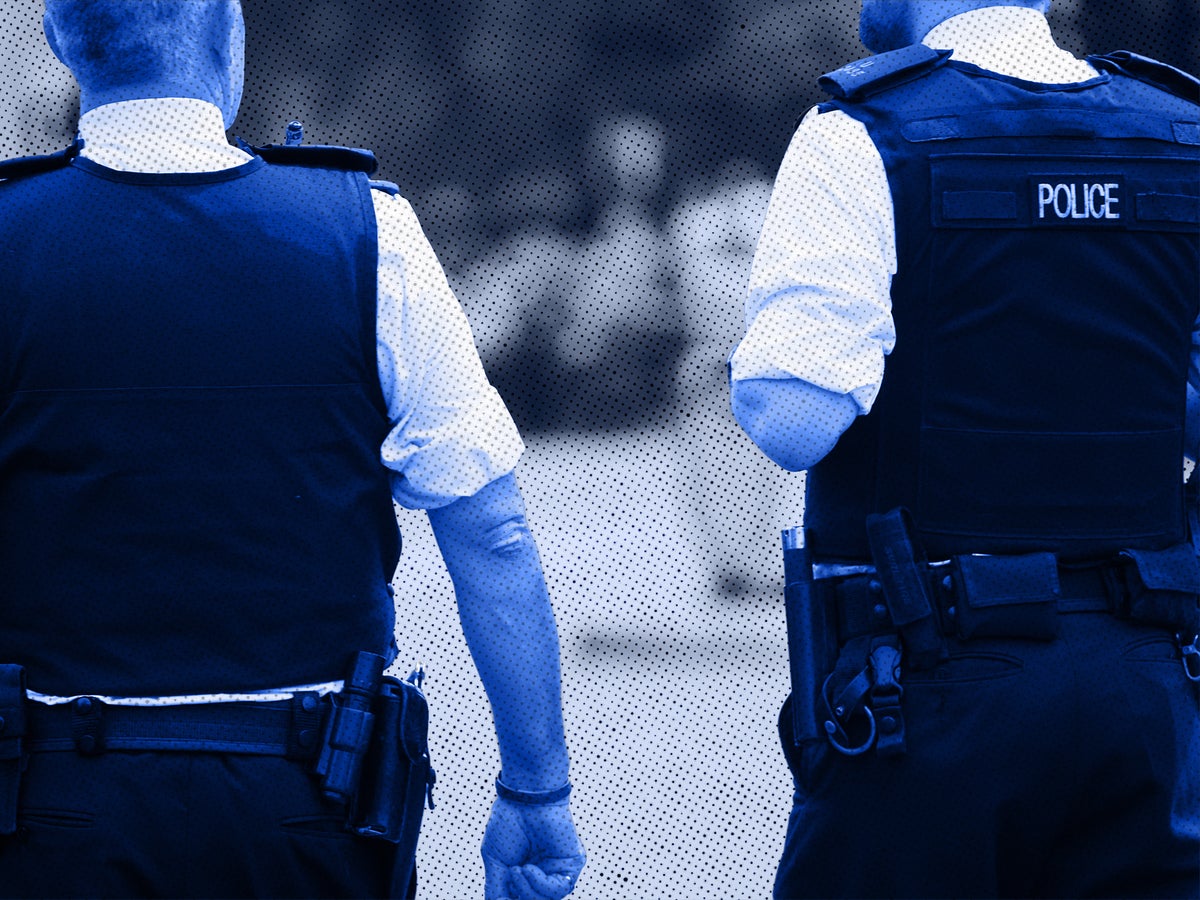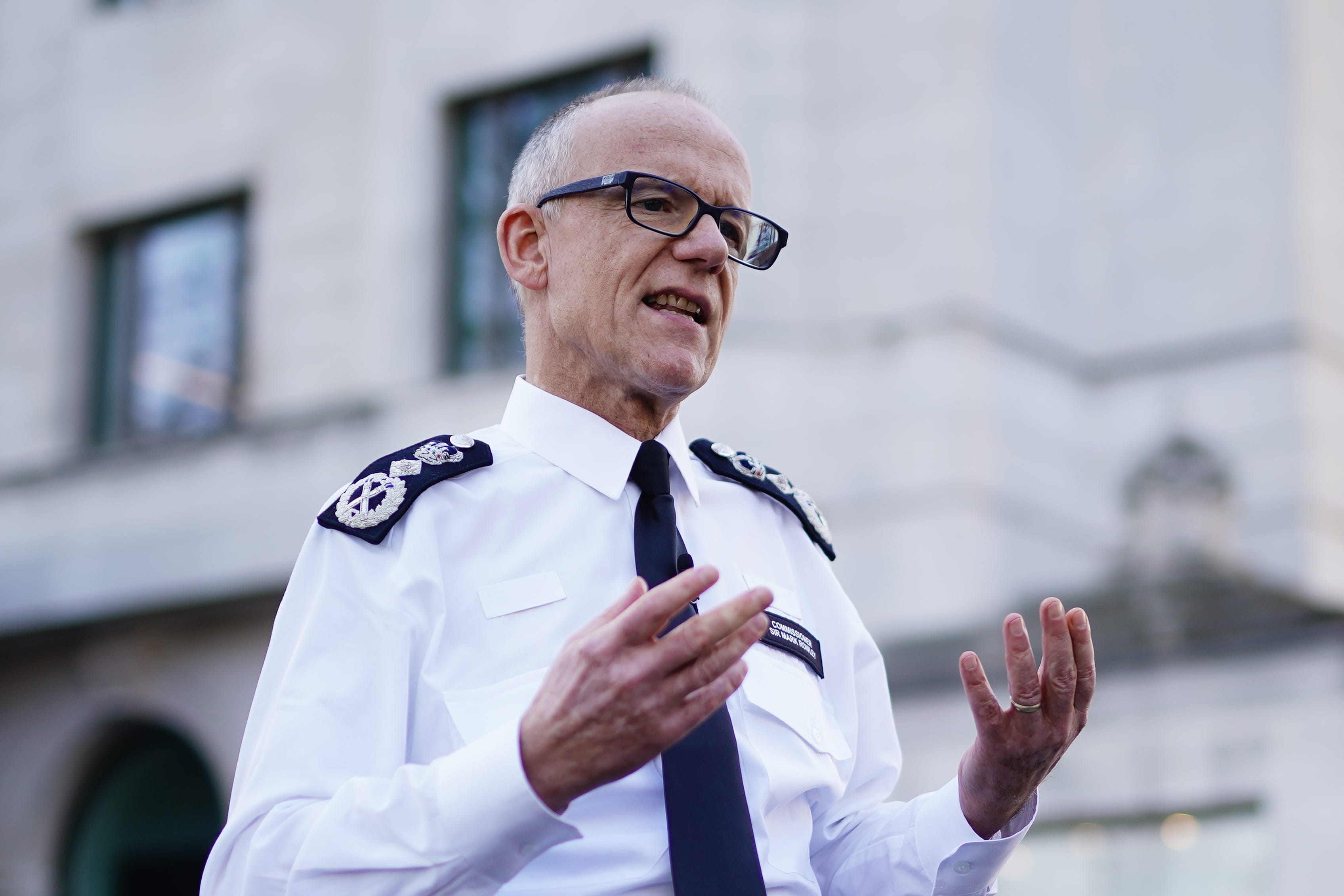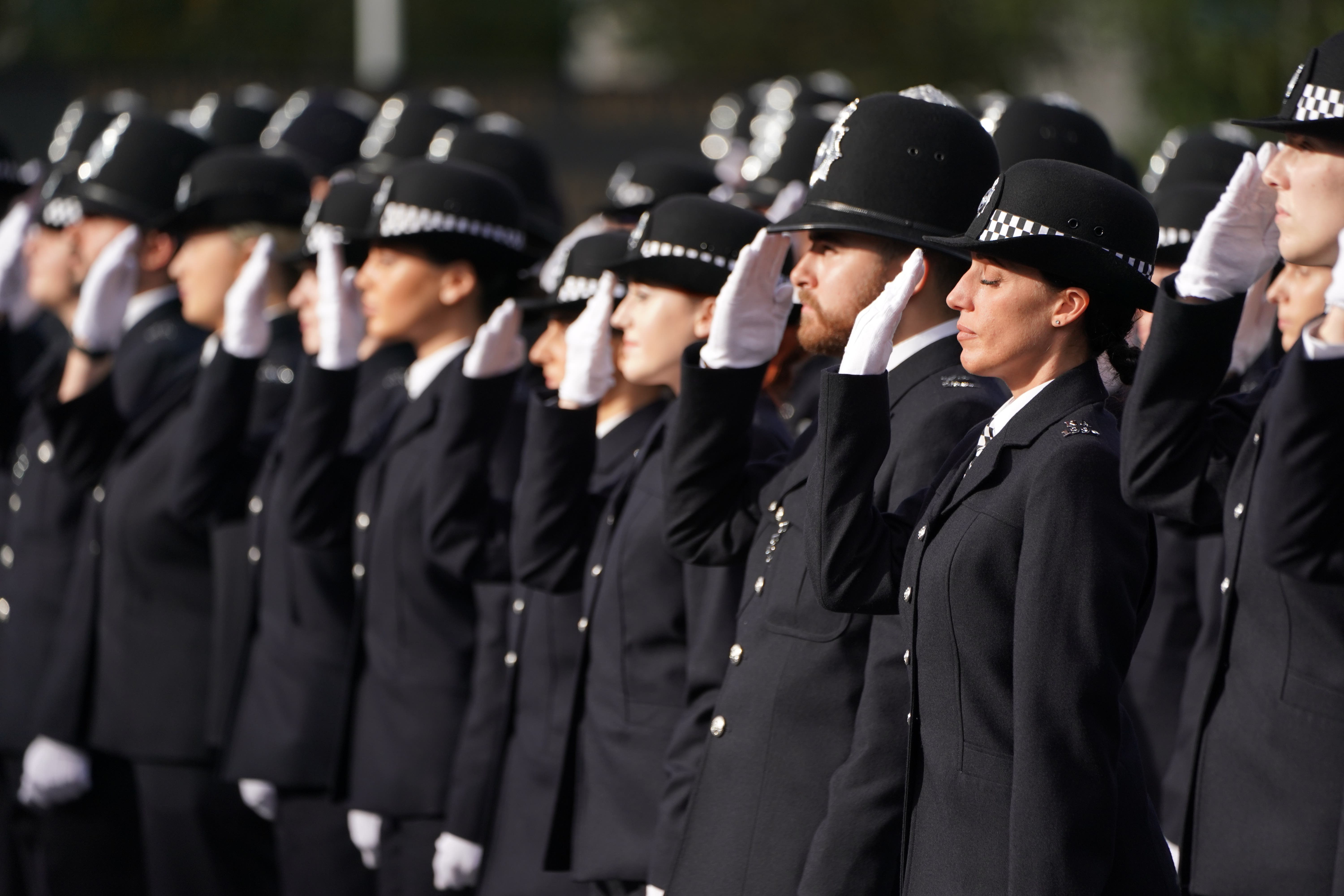
A “culture of denial” has allowed predators to flourish in the Metropolitan Police, a damning review triggered by the murder of Sarah Everard has found.
The force was found to be institutionally racist, misogynist and homophobic with scant regard for victims of sexual violence.
Baroness Louise Casey said she could not rule out more offenders like murderer Wayne Couzens and serial rapist David Carrick lurking in Britain’s largest force.
“I cannot sufficiently assure you that that is not the case,” she told a press conference. “This isn’t wrong-uns or ‘bad apples’, this is systemic failure across the system.”
Key findings in the 360-page report included:
- Two of the best-resourced units, the Specialist Firearms Command and the Parliamentary and Diplomatic Protection Command, had the worst culture
- Austerity “disfigured” the Met with cuts between 2010 and 2019 leaving women victims “thrown to one side”
- Fridges containing evidence for rape cases were broken, meaning cases were dropped
- Alleged domestic abusers, including an officer accused of rape, remain in service
Commissioner Sir Mark Rowley accepted Baroness Casey’s “deeply troubling diagnosis”, and that the force contains racists, misogynists and homophobes and has systemic failings, but refused to adopt the labels of institutional racism, misogyny and homophobia.
“I have to use practical, unambiguous, apolitical language,” he said.
“I don’t think the term fits those criteria, it means different things to different people. It’s become quite politicised as an idea.”
The commissioner, who was appointed after the ousting of Dame Cressida Dick over a slew of scandals, added: “I completely respect others’ reasons to use that term but it’s not a term I’m going to use myself … we’re not going to use it.”
Sir Mark insisted that he was “under no illusions” about the significance of the report, and apologised for failings exposed after “catastrophic and criminal incidents involving police officers”.
He committed to “radical reform” and said changes were already “reducing the risk” posed by predatory officers.
The report found that years of austerity had “disfigured” the force, with Baroness Casey saying spending choices “essentially threw women and the protection of women to one side” as specialist units were prioritised over response teams dealing with crimes such as domestic violence.
It found that two of the best-resourced units, the Specialist Firearms Command and the Parliamentary and Diplomatic Protection Command – where Carrick and Couzens served – had the worst culture.

“With elitist attitudes and toxic cultures of bullying, racism, sexism and ableism, normal rules do not seem to apply or be applied,” the report said.
The findings came after a woman told The Independent that her former partner, who is a serving armed Metropolitan Police officer, escaped prosecution for domestic abuse after interfering with the investigation and deleting potential evidence from his phone.
He has been put on restricted duties, but not suspended, as Scotland Yard considers whether to bring disciplinary action over her allegations of violent outbursts and controlling and coercive behaviour.
There were numerous examples of discrimination, bullying and harassment against officers who were female, gay or Black, with those responsible being let off or even promoted after complaints.
“We have found institutional racism, misogyny and homophobia in the Met,” the report said.
“In the absence of vigilance towards those who intend to abuse the office of constable, predatory and unacceptable behaviour has been allowed to flourish.”
The review detailed numerous horrific cases of abuse and discrimination by officers, against both the public and their own colleagues.
A female officer told how she was the victim of rape and domestic abuse by a male colleague, who remains in the force despite her reporting him and handing over evidence.
Days after the murder of Sarah Everard, she received a one-line email from the Directorate of Professional Standards saying no action would be taken.
“The Met was coming out saying, ‘We hate violence against women and girls, we stand against this’, and I was thinking, ‘No you don’t’,” the female officer said.
“Did I need to die in order for you to take me seriously and actually look at this sort of stuff?”
The review found that existing processes “do not effectively root out bad officers”, and that recruitment and vetting safeguards are poor.
It said the Met had managed to protect neither its own female employees nor members of the public from police domestic abusers or officers who use their position for sexual purposes.
“Despite the Met saying violence against women and girls is a priority, it has been treated differently from ‘serious violence’,” the review found. “It has not been taken as seriously in terms of resourcing and prioritisation.”

The Casey review suggested that officers were also learning to cover their tracks after a run of high-profile dismissals over racist and misogynist WhatsApp messages.
“There is a tactic taught to some officers to indicate when a WhatsApp, Signal or Telegram group has become ‘compromised’ in some way,” the report said.
“Officers will then immediately leave the group, delete its contents and create a new group under a new name.”
Baroness Casey called for the Met to “change itself”, adding: “It is not our job as the public to keep ourselves safe from the police. It is the police’s job to keep us safe as the public.
“Far too many Londoners have now lost faith in policing to do that.”
She urged the force’s leaders not to repeat the “tick-box” approach to years of damning reports dating back to the murder of Stephen Lawrence, and warned that the Met may need to be broken up if it does not improve.
“The Met does not easily accept criticism nor ‘own’ its failures,” the report concluded. “One of the saddest aspects of this culture of denial is that many of the issues highlighted in this report have been known about, reported on and investigated before.”
The review made 16 recommendations and said the changes need to be made by the Met, the Mayor’s Office for Policing and Crime and the Home Office to “create a radically improved” force.
The home secretary said she would hold Sir Mark “to account to deliver a wholesale change in the force’s culture”.
“The government is also driving forward work to improve culture, standards and behaviour across policing, including strengthening vetting and reviewing the dismissals process,” Suella Braverman added.
The mayor of London, Sadiq Khan, said the review must be a “turning point”, adding: “I’ll be unflinching in my resolve to support and hold the new commissioner to account as he works to overhaul the force.”







